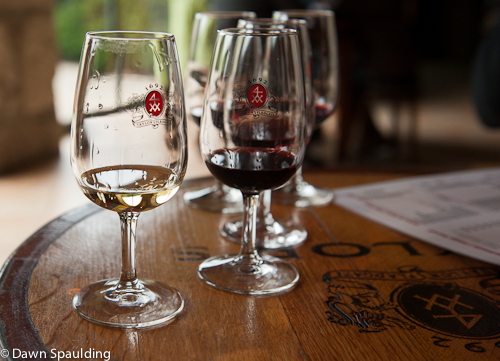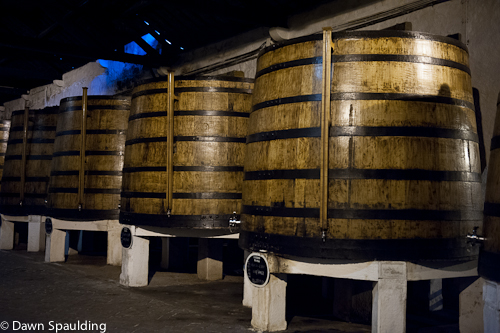
You can’t visit Portugal and not sample the most famous product, port wine.
Surprisingly, British merchants are credited with popularizing port wine. In the 17th century, when Britain and France went to war, Britain’s Bordeaux supply dried up. Handily, the Portuguese winemakers stepped in.
Portugal’s wild and mountainous Upper Duoro was ideal for growing grapes, though the resulting wine was strong and astringent. To add insult to injury, the wines didn’t travel well over the rough Atlantic. When the casks reached the U.K., the Brits added a little fortification – brandy – to the wine. The result: port wine.

This method became so popular that eventually winemakers began adding grape spirit during fermentation. The fortification causes the grape’s fermentation to stop, leaving some original sweetness in the finished wine. The fortifying process not only protected the wine from being ruined by the harsh sea, but improved it, helping it mature into the product we know today.
British influence is seen today in some of the original wineries such as Graham’s and Taylor’s.
Port-wine grapes grow on rocky terraces and don’t require much water or soil. Their deep roots slip past layers of shale as deep as 40 feet to seek nourishment. The temperatures are extremely hot in the summer and cold in the winter, resulting in intense flavors.
5 Responses to Portugal and Port Wine